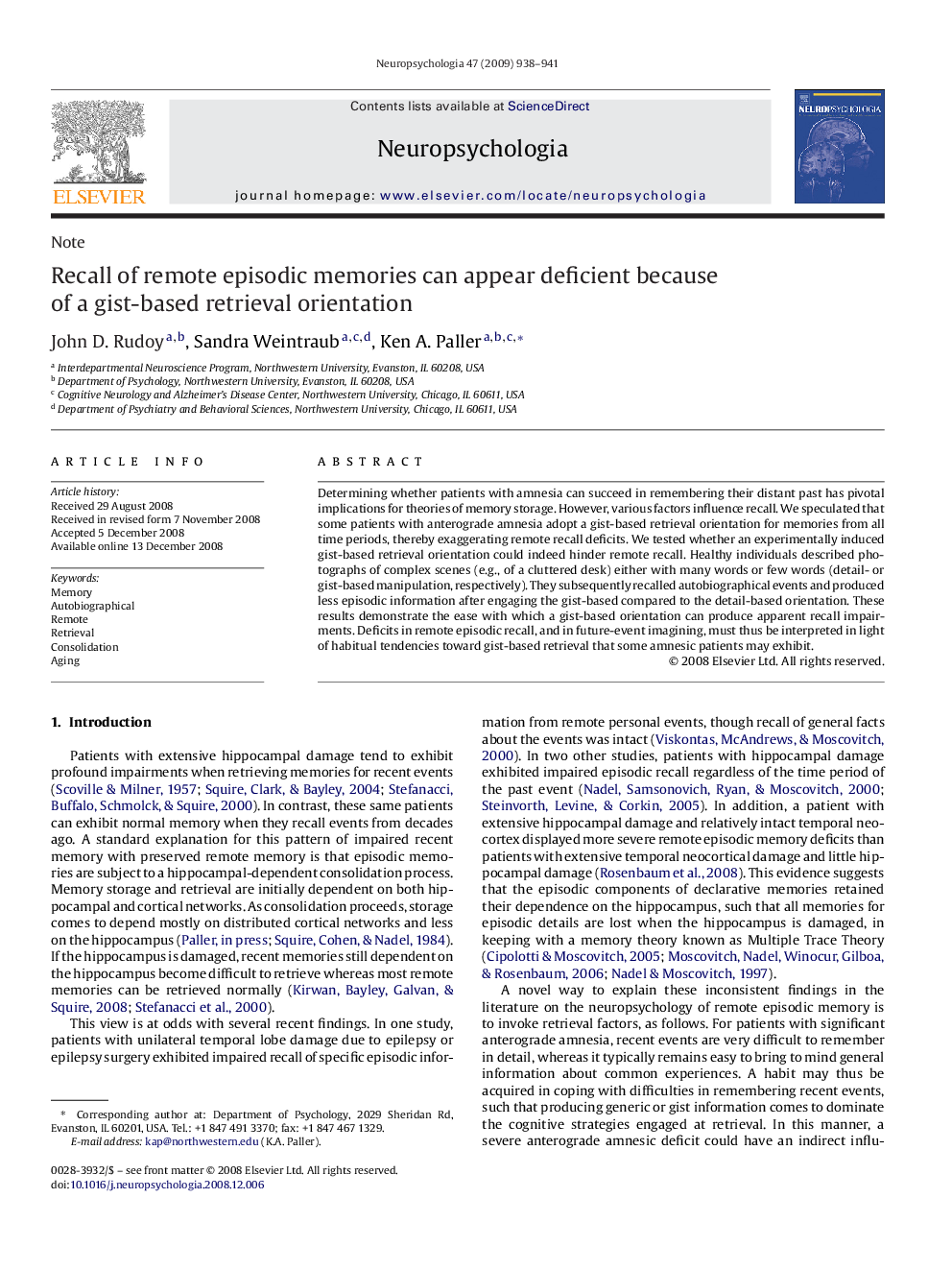| Article ID | Journal | Published Year | Pages | File Type |
|---|---|---|---|---|
| 945344 | Neuropsychologia | 2009 | 4 Pages |
Determining whether patients with amnesia can succeed in remembering their distant past has pivotal implications for theories of memory storage. However, various factors influence recall. We speculated that some patients with anterograde amnesia adopt a gist-based retrieval orientation for memories from all time periods, thereby exaggerating remote recall deficits. We tested whether an experimentally induced gist-based retrieval orientation could indeed hinder remote recall. Healthy individuals described photographs of complex scenes (e.g., of a cluttered desk) either with many words or few words (detail- or gist-based manipulation, respectively). They subsequently recalled autobiographical events and produced less episodic information after engaging the gist-based compared to the detail-based orientation. These results demonstrate the ease with which a gist-based orientation can produce apparent recall impairments. Deficits in remote episodic recall, and in future-event imagining, must thus be interpreted in light of habitual tendencies toward gist-based retrieval that some amnesic patients may exhibit.
